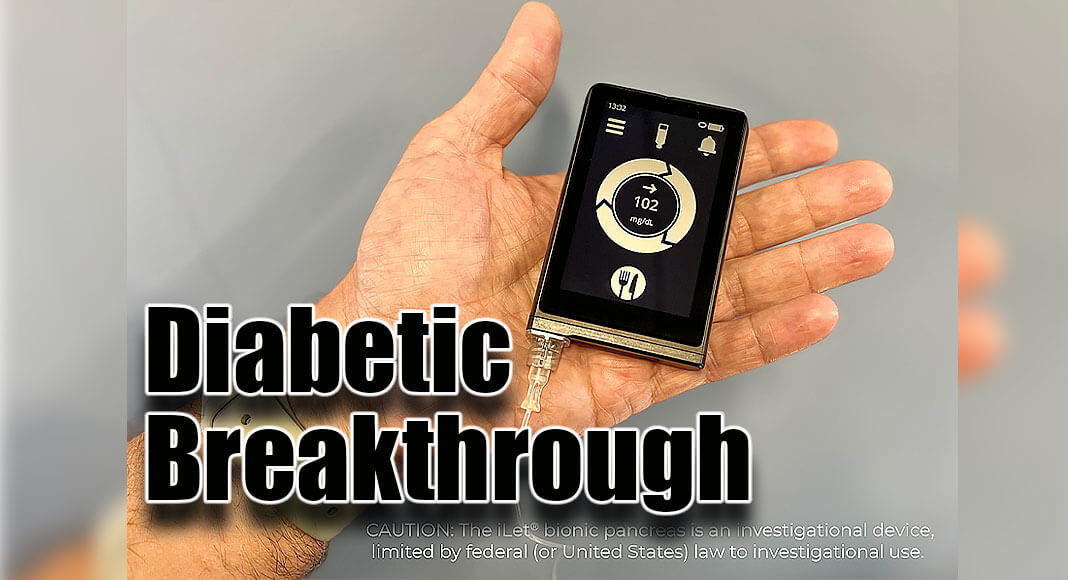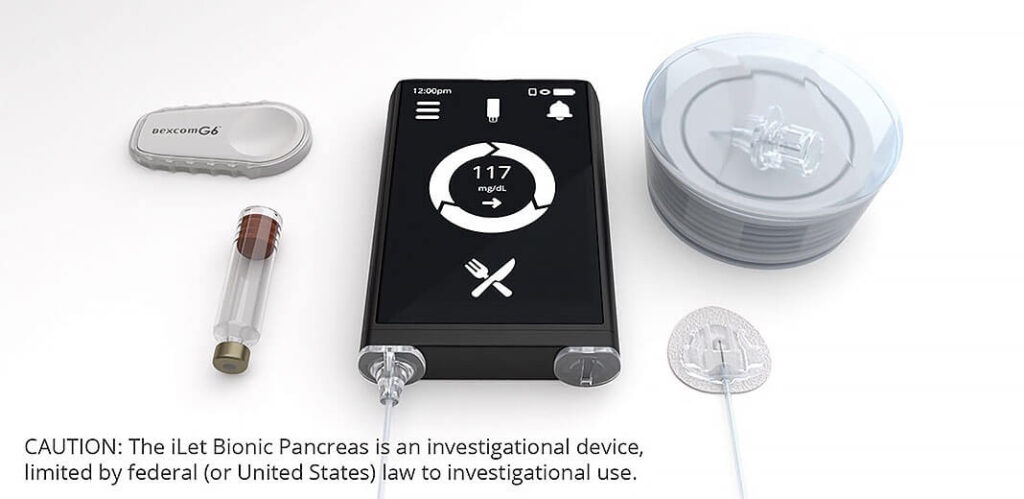
Mega Doctor News
Newswise — A device known as a bionic pancreas, which uses next-generation technology to automatically deliver insulin, was more effective at maintaining blood glucose (sugar) levels within normal range than standard-of-care management among people with type 1 diabetes, a new multicenter clinical trial has found. The trial was primarily funded by the National Institute of Diabetes and Digestive and Kidney Diseases (NIDDK), part of the National Institutes of Health, and published in the New England Journal of Medicine.
Automated insulin delivery systems, also called artificial pancreas or closed-loop control systems, track a person’s blood glucose levels using a continuous glucose monitor and automatically deliver the hormone insulin when needed using an insulin pump. These systems replace reliance on testing glucose level by fingerstick, continuous glucose monitor with separate insulin delivery through multiple daily injections, or a pump without automation.

Compared to other available artificial pancreas technologies, the bionic pancreas requires less user input and provides more automation because the device’s algorithms continually adjust insulin doses automatically based on users’ needs. Users initialize the bionic pancreas by entering their body weight into the device’s dosing software at the time of first use.
Users of the bionic pancreas also do not have to count carbohydrates, nor initiate doses of insulin to correct for high blood glucose. In addition, health care providers do not need to make periodic adjustments to the settings of the device.
“Among the children, teens and parents participating in this study, youth showed statistically and clinically meaningful improvements in their time spent in target blood glucose range, even though there was no need to count carbohydrates, calculate basal insulin dosing or correct high glucose levels,” said study co-author Jill Weissberg-Benchell, PhD, CDCES, pediatric psychologist at Ann & Robert H. Lurie Children’s Hospital of Chicago and Professor of Psychiatry and Behavioral Sciences at Northwestern University Feinberg School of Medicine. “This novel insulin delivery system likely decreases both the emotional and cognitive burden of diabetes management for both youth and parents living with type 1 diabetes.”
The 13-week trial, conducted at 16 clinical sites across the United States, enrolled 326 participants ages 6 to 79 years who had type 1 diabetes and had been using insulin for at least one year. Participants were randomly assigned to either a treatment group using the bionic pancreas device or a standard-of-care control group using their personal pre-study insulin delivery method. All participants in the control group were provided with a continuous glucose monitor, and nearly one-third of the control group were using commercially available artificial pancreas technology during the study.
In participants using the bionic pancreas, glycated hemoglobin, a measure of a person’s long-term blood glucose control, improved from 7.9 percent to 7.3 percent, yet remained unchanged among the standard-of-care control group. The bionic pancreas group participants spent 11 percent more time, approximately 2.5 hours per day, within the targeted blood glucose range compared to the control group. These results were similar in youth and adult participants, and improvements in blood glucose control were greatest among participants who had higher blood glucose levels at the beginning of the study.
Hyperglycemia, or high blood glucose, caused by problems with insulin pump equipment, was the most frequently reported adverse event in the bionic pancreas group. The number of mild hypoglycemia events, or low blood glucose, was low and was not different between the groups. The frequency of severe hypoglycemia was not statistically different between the standard of care and bionic pancreas groups.
Four companion papers were also published in Diabetes Technology and Therapeutics, two of which provided more detailed results among the adult and youth participants. The third paper reported results from an extension study in which the participants from the standard-of-care control group switched to using the bionic pancreas for 13 weeks and experienced improvements in glucose control similar to the bionic pancreas group in the randomized trial. In the fourth paper, results showed that using the bionic pancreas with a faster-acting insulin in 114 adult participants improved glucose control as effectively as using the device with standard insulin.
Research at Ann & Robert H. Lurie Children’s Hospital of Chicago is conducted through Stanley Manne Children’s Research Institute. The Manne Research Institute is focused on improving child health, transforming pediatric medicine and ensuring healthier futures through the relentless pursuit of knowledge. Lurie Children’s is ranked as one of the nation’s top children’s hospitals by U.S. News & World Report. It is the pediatric training ground for Northwestern University Feinberg School of Medicine.










